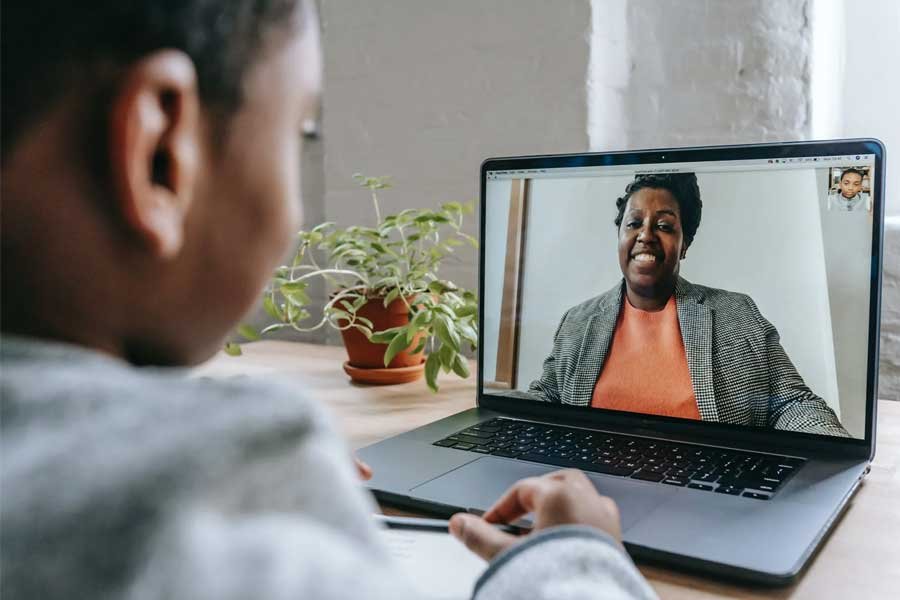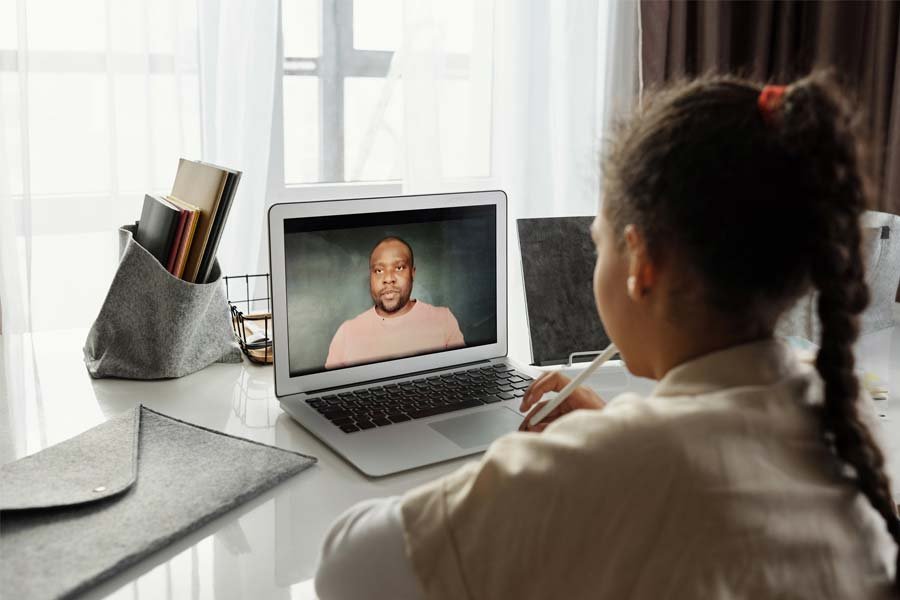Mental health issues can affect people of all ages, from traumatized children to elderly adults. In recent years, researchers have seen an abrupt increase in mental health disorders among adolescents. Whether this trend is related to social media platforms, smartphones, or some other cause, it’s incumbent on everyone in society to confront the epidemic directly.
If you’re a concerned parent or a troubled teenager, you must take mental health seriously. Common issues like depression, anxiety, and trauma are all deserving of professional treatment. Therapy sessions with a licensed therapist can help an individual come to terms with whatever is bothering them. Eventually, regular counseling can even help you overcome your problems altogether.
The internet has brought about an exciting new opportunity for troubled teens: online therapy. You can now use an online platform to access an accredited counselor from anywhere in the world. Not only is online therapy just as effective as in-person treatment, but it even offers additional advantages. By fitting remote sessions into your busy schedule, you can maintain regular contact with your therapist and enjoy faster results. If you or your teen require therapy, consider signing up for an online platform today.

We help you find your psychologist
Why use an online platform?
There are several reasons why online therapy is a great option for many teenagers. For one thing, online platforms give you consistent access to your therapist. Instead of having to wait around for your next scheduled session, you’ll be able to contact your counselor whenever the need arises. This allows the therapy to become an even bigger factor in your life.
Online therapy also gives you a greater sense of flexibility. Between school, extracurricular activities, and social engagements, many teenagers live remarkably busy lives. It can be hard to squeeze in-person counseling sessions in among so many soccer games and dance recitals. With remote therapy, you can change your routine on a weekly basis and contact your counselor in between other activities.
Another benefit of online therapy is that it can help the client feel more comfortable. By its very nature, counseling requires the discussion of delicate, potentially uncomfortable topics. A teenager who would be embarrassed to share personal details in an unfamiliar office might be more willing to open up when they’re talking to a therapist from the comfort of their own bedroom. This increased willingness to engage will ultimately make the process more effective.
Don’t make the mistake of assuming online therapy is inherently worse than traditional counseling. Studies have shown that remote therapy conducted online is a viable alternative to in-person sessions. If you think therapy is right for you or your child, there’s no reason not to consider online platforms. Remote therapy will be just as good as traditional counseling, and it might even be better.

Confidentiality: What’s a therapist obligated to share?
Like all therapists, reputable online counselors will maintain rigorous standards of confidentiality. You can trust your remote therapist to carefully guard any information you share with them. Confidentiality should be second nature to most experienced professionals.
Therapists working online should also take extra precautions regarding cybersecurity. They should do whatever it takes to protect their clients, including deleting old data and encrypting messages. If you seek therapy through an established platform, you can expect the company to employ vigorous security measures.
While confidentiality and security are important elements of online therapy, it’s important to note certain exceptions. Therapists are obligated to report potential threats of bodily harm to clients or a third party. If a teenager shares their plan to injure a classmate, for example, the counselor has a duty to report the intention. Indications of future self-harm must also be reported. Established counseling platforms have systems in place to allow for this reporting.

We help you find your psychologist
What’s included in online teen therapy?
Online teen therapy is a general category with all sorts of variations. The specific treatment you or your child receives will depend on the nature of their case and the tendencies of the particular therapist. There are certain components that frequently feature in online teen therapy. Here’s a basic rundown of what you can expect your online counseling to include.
Peer group therapy
Teenagers are especially susceptible to peer pressure, with the need for affirmation from classmates sometimes fueling addiction, delinquency, and mental health issues. Peer group therapy seeks to turn a teenager’s social reactiveness into a force for good by promoting positive, productive dialogue. Giving young people a safe space to share their experiences and emotions is often the first step toward ultimate healing.
There are several benefits associated with peer group therapy. First of all, the secure environment allows people to vent their truest feelings. Simply getting painful details out into the open can help a person overcome their mental hangups. Peer group therapy also allows everyone involved to see that they’re not alone in their struggles. Hearing stories that are similar to your own makes you feel like less of an outcast, and a renewed belief in your essential normalness will make it easier to forgive yourself and move on.
Modern technology makes peer group therapy possible in a virtual setting. As people grow increasingly comfortable with video conferences and other forms of remote communication, it becomes easier to recreate the social dynamics of an in-person session. If your online counseling provider opts for peer group therapy, you can expect the activity to be just as effective as it would have been in a physical meeting place.
1-on-1 Talking therapy
When people think of counseling, they often imagine the discussion-based approach commonly known as talking therapy. That’s because talking therapy has become the predominant method for dealing with mental health issues around the world. By discussing recurrent problems with a professional therapist, clients can learn to understand themselves, regulate their emotions, and change their behavior.
There are many distinct types of talking therapy, and your counselor might draw from several traditions during a standard session. Cognitive behavioral therapy is a common approach that helps clients recognize the patterns connecting their thoughts to their actions. It’s a common method for treating depression, anxiety, and other mental health issues. Behavioral activation therapy is a similar approach that helps clients overcome internal conflicts through everyday tasks and activities.
Interpersonal therapy, meanwhile, focuses on the client’s relationship with friends, relatives, and peers. When poor relationships are responsible for depression or other issues, interpersonal therapy seeks to solve the problem at its source. Mindfulness-based cognitive therapy is another approach for treating depression or addiction, and it works by combining traditional techniques like meditation with cutting-edge cognitive therapy.
All these approaches represent distinct ways that a therapist can improve your well-being through pointed, intentional conversation. Whichever specific approach your therapist takes, you can expect the discussion to wield positive results. By sharing your innermost concerns and receiving professional feedback, you’ll develop new strategies for becoming a stronger, healthier individual.
Activity-based interventions
While talking is important when it comes to improving mental health, it’s also vital to engage in meaningful activities that enhance overall well-being. Your therapist is likely to suggest certain activities or tasks that will help you overcome whatever issues you’re facing. Some of these activities will take place during the sessions themselves, while others will be assigned for completion on your own. By taking your therapist’s advice and engaging in the prescribed activities, you can activate your mind and develop more positive habits.
There are all sorts of activities that serve as excellent components of online teen therapy. Many counselors assign art-related tasks like collage-making and sculpting. Others favor writing activities like journaling or poetry. During actual sessions, your therapist may ask you to engage in creative tasks that promote a healthy discussion of your mental health. All of these activities will make it easier to understand your concerns and put a positive mindset into action.

Therapy using cell phone apps
While the adverse effects of technology on adolescents’ mental health have been well documented in recent years, it’s worth acknowledging that smartphones and similar devices can also serve as therapeutic tools. There are many apps available that help teens put their therapists’ recommendations into action. Your counselor might suggest these apps as a fun way to make consistent progress.
Some applications give teens a direct line to accredited therapists. Others provide relaxing music, sleep stories, and breathing exercises to help teens calm themselves down in stressful moments. There are also journaling programs that encourage adolescents to write down their thoughts and emotions. While none of these apps act as a comprehensive cure-all, they can effectively supplement the work of a licensed therapist.

We help you find your psychologist
Conclusion: Online help for teens
Teenagers are certainly susceptible to mental health issues, but they can also prove remarkably resilient. To overcome whatever is bothering you or your teen, consider signing up for online therapy. A remote counselor can provide the comprehensive benefits of traditional therapy while maximizing accessibility, flexibility, and convenience. By combining peer group therapy, talking therapy, creative activities, and app-based projects, the therapist will help forge lasting solutions. There’s no need to suffer alone when such a viable option is readily available. To get back on track toward a vibrant, healthy teenage life, seek out online counseling today.
https://www.webmd.com/mental-health/features/therapy-for-teens
https://www.goodtherapy.org/learn-about-therapy/issues/child-and-adolescent-issues

We help you find your psychologist


